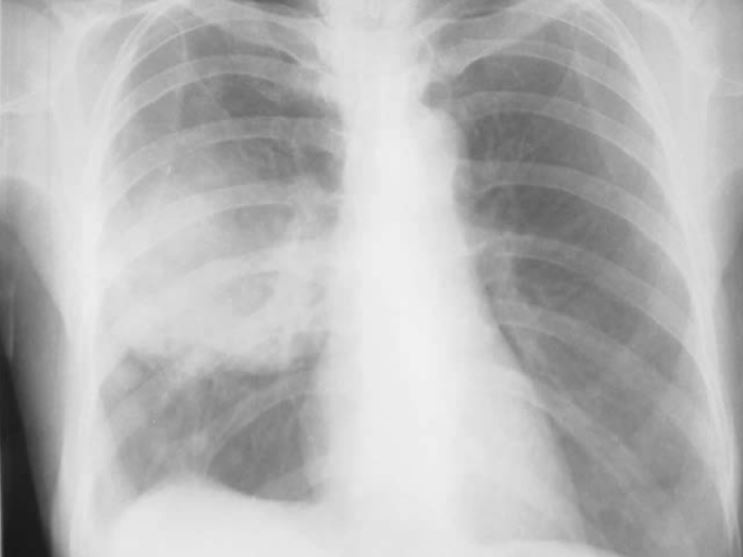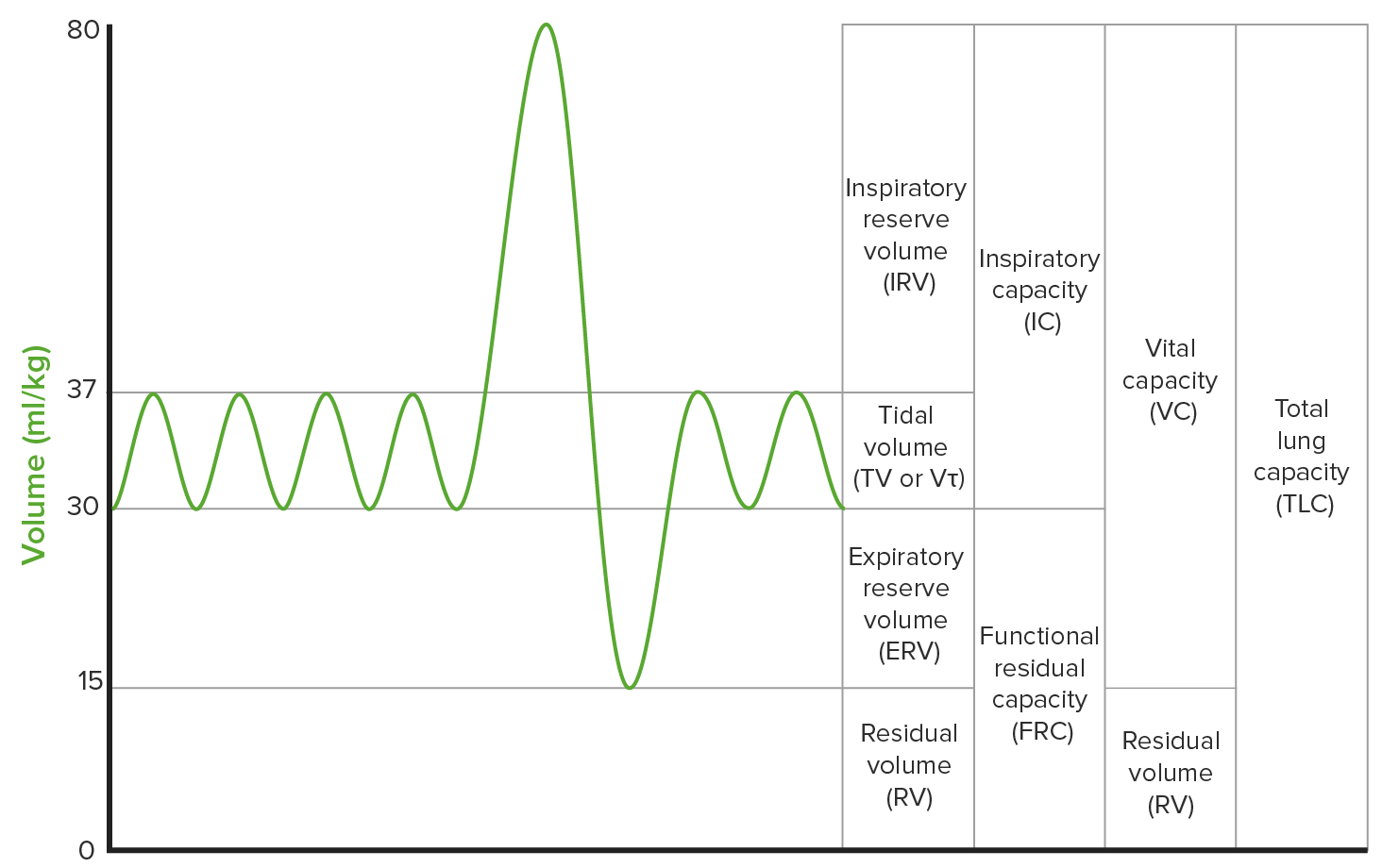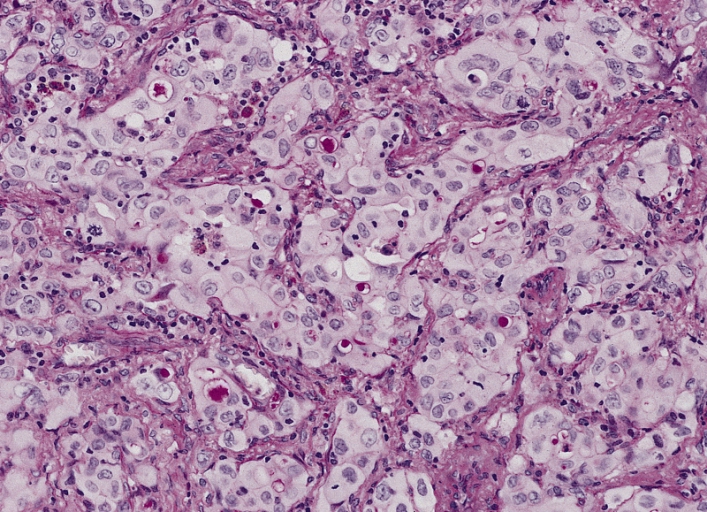Playlist
Show Playlist
Hide Playlist
Lung Cancer and Tumors: Overview
-
Slides 07 LungCancer Tumors and Metastases Neoplasias RespiratoryAdvanced.pdf
-
Download Lecture Overview
00:01 The Subject for this talk are Lung cancers and lung tumours. Specifically lung cancer itself which is a malignant cancer arising from respiratory tract epithelium. But also lung metastases that is secondary cancer spread from elsewhere in the body to reach the lung. Mesothelioma which is primary malignant cancer of the mesothelium and particularly associated with asbestos exposure and a little bit about rarer lung tumours which is small benign or semi-malignant tumours which are unusual but are sometimes identified by radiology. 00:37 So Lung Cancer, it's difficult to emphasize enough how important lung cancer is? It is the commonest fatal cancer. It is responsible for total of 13% of all cancers. 00:49 If you develop a lung cancer, there is a 90% of chance of that cancer will kill you. 00:55 It is relatively rare if you are under 50. But as you get over 50, the instance of lung cancer increases, increases and increases of a peak instance occurring around 75–79 years of age. Where 1 man in every 200 will develop cancer each year and approaching 1 woman in every 200 will develop a cancer each year. If you look at the UK, the life time risk for developing lung cancer for men is 1 in 14 and for women in 1 in 19. And for both men and women it is the most fatal, it is the commonest fatal lung cancer and in fact it kills more people than the next three commonest cancers put together. 01:38 There are two main histological characteristic types of lung cancer. The first is called non-small cell lung cancer and that accounts for 80% of the disease and this is further subdivided into three categories. 1) Squamous cell cancer. These tend to come from the large airways in the centre of the lungs and therefore presents with haemoptysis and blockage of the airway. Adenocarcinoma which in contrast to squamous cells tend to be peripheral tumours and arise from mucosal glands in the smaller airways distally and large cell cancers which are the smaller proportionally 10% of these cases which again is peripheral and histology of the lung cancer is varied. The large cell lung cancer is varied. 02:24 The other type of lung cancer is small cell lung cancer. This accounts for 20% of all cases. 02:32 They like squamous cell cancers tend to be central tumors arise in the peribronchial epithelium and they grow rapidly and they metastasize early. They are sensitive to chemotherapy but because they grow so rapidly and because even a presentation most patients have metastases somewhere even if they are not detectable by radiology. Surgery is not usually curative and not offered and this is why there's such an important distnction between small cell lung cancer and non-small cell lung cancer. Because in non-small cell lung cancer, your main aim is to identify patients who can be cured by surgical resection where as in small cell lung cancer that option is not normally available and they will all get chemotherapy instead.
About the Lecture
The lecture Lung Cancer and Tumors: Overview by Jeremy Brown, PhD, MRCP(UK), MBBS is from the course Lung Cancer.
Included Quiz Questions
Which of the following is the most common histologic type of lung cancer?
- Adenocarcinoma
- Small cell carcinoma
- Squamous cell carcinoma
- Large cell carcinoma
- Neuroendocrine carcinoma
Which of the following statements are TRUE regarding lung cancer?
- Small cell lung cancer grows and metastasizes so rapidly that surgery is not considered curative and is usually not offered as a treatment option.
- Squamous cell carcinomas are the most common type of lung cancer due to the use of a filter in cigarettes.
- Squamous cell cancer and small cell cancer are usually found in the periphery of the lungs.
- Adenocarcinoma and large cell cancer arise from bronchial epithelium.
- Small cell cancers of the lung are rarely metastatic.
Customer reviews
5,0 of 5 stars
| 5 Stars |
|
1 |
| 4 Stars |
|
0 |
| 3 Stars |
|
0 |
| 2 Stars |
|
0 |
| 1 Star |
|
0 |
Dr.Brown makes the concept very clear to understand,very essential






